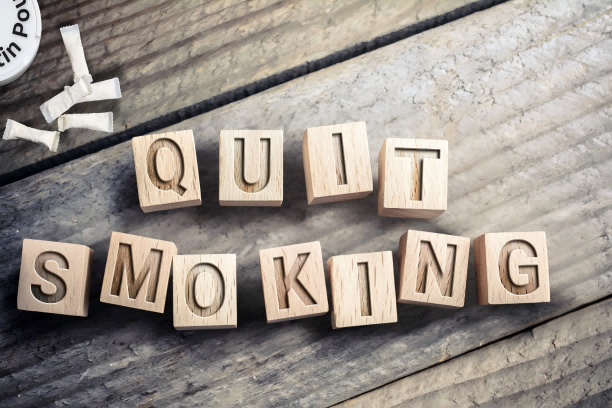Smoking used to be seen as cool. It was a symbol of rebellion, something people did to fit in. But things have changed. Now we see the reality—cancer, addiction, and severe health risks. The question is, what happens to those already hooked? Those who want to quit but feel stuck? One solution gaining attention is nicotine pouches. These small, white sachets offer nicotine without the harmful smoke and tar. But do they really help, or are they just another trap? Today, we’re diving into real stories from people who’ve tried them. Let’s see how they made a difference in their quitting journey.
Real Stories, Real People
Maria, a single mom in Chicago, knows the struggle all too well. She had been smoking for over a decade, trying everything to quit—patches, gum, even those weird inhalers. “I was beginning to think I would be a smoker for life,” Maria shared. She couldn’t keep up with her kids, and they were starting to notice. “Mom, why do you always smell like smoke?” her youngest asked one day. That was her breaking point. When a friend mentioned nicotine pouches, Maria was skeptical. “I didn’t think they would work,” she admitted, “but I was willing to try anything.” It wasn’t an overnight miracle, but within a few weeks, she noticed her cravings were easier to manage. Now, she can run around the park with her kids without needing a break every five minutes. “The best part?” she smiles, “My kids say I smell like ‘me’ again.”
David, a college student in California, started smoking in high school. “It made me feel cool, invincible, like I was part of something,” he remembers. But by the time he got to college, smoking had become more of a habit than a choice. “I tried quitting cold turkey, but that lasted all of two days,” he laughs. The stress of school made it harder. “Nicotine was my crutch to deal with exams and social pressure,” David explained. A friend introduced him to nicotine pouches during finals week. “I started with the stronger ones and slowly tapered down.” It wasn’t easy, but David says the pouches helped him control the cravings without losing focus. Now, not only is he smoke-free, but he’s also pouch-free. “I’m proof that these things can help you quit for good if you stick with it.”
Then there’s Aisha, a high-powered executive in New York City. She’s not interested in quitting nicotine entirely. “I like the buzz,” she says. “It helps me stay sharp at work.” But she knew smoking was killing her slowly. Aisha switched to nicotine pouches as a compromise. “I don’t have to deal with the smoke, smell, or judgment from others.” For her, it’s not about quitting completely—it’s about harm reduction. “I’m not ready to give up nicotine, but I am done with cigarettes.”
Your Guide to Quitting with Nicotine Pouches

Quitting smoking isn’t just about breaking a habit—it’s about reshaping your relationship with nicotine. For many smokers, nicotine becomes a part of how they handle stress, boredom, or even social situations. The first step is realizing that cigarettes aren’t your friend—they’re stealing your health and freedom. Start with something small. Skip that morning cigarette with your coffee or trade your afternoon smoke break for a walk. Nicotine pouches can help manage the cravings, but the goal is to take control, one step at a time.
Harm Reduction: A Step Forward
Nicotine pouches aren’t completely harmless, but compared to cigarettes, they’re a game-changer. No smoke means no tar, no carbon monoxide, and no toxic chemicals. You can start with a higher strength and gradually taper down as your body adjusts. Maria mentioned how the gradual reduction worked for her without making her feel like she was losing her mind. It’s about making better choices, and pouches can be a part of that journey. Just remember to listen to your body—if anything feels off, consult with a healthcare professional.
Common Struggles and How to Overcome Them
Let’s be real—quitting smoking isn’t easy. There will be moments when it feels impossible. Maria struggled with this. “There were days when I just wanted to scream. The cravings would hit hard, especially during stressful moments.” It’s important to recognize that these moments will come and that they’re temporary. David shared that knowing his triggers—like stress from exams—helped him avoid moments of weakness.
Here are a few tips to help when the going gets tough:
- Know Your Triggers: Is it stress, boredom, or after a meal? Identifying these triggers allows you to plan healthier ways to cope, like taking a walk or sipping water.
- Find Support: Whether it’s online forums or local support groups, connecting with others who are also quitting can make a huge difference. Maria found comfort in sharing her struggles with fellow quitters.
- Don’t Fear Setbacks: It’s okay to stumble. A relapse doesn’t mean failure. Aisha admits that she still craves nicotine but feels in control now. “It’s all part of the process,” she says.
The Perks of Quitting: More Than Just Fresh Breath
Your Heart Will Thank You
Smoking puts your heart at risk. Cigarettes clog your arteries, raise your blood pressure, and increase your chances of heart disease. Quitting lowers your risk of heart attacks and strokes. Maria shared that after just a few weeks of being cigarette-free, she noticed her energy levels rising. “I could actually run with my kids again without feeling like I’d collapse,” she recalls.
Breathe Easy
Remember when you could take a deep breath without coughing? Quitting gives your lungs a chance to heal, improving how you feel day to day. You’ll find that activities like hiking or even walking up the stairs become easier. David noticed he didn’t get winded as quickly after quitting. “My friends started noticing I wasn’t coughing all the time anymore,” he says.
The Nicotine Pouch Debate: What People Are Saying
Nicotine pouches are a relatively new option, so it’s no surprise that there’s still debate. Some worry that these products could be a gateway to tobacco use, especially among young people. “There’s always going to be concern,” David mentions. But others, like Maria, argue that nicotine pouches are a valuable tool for quitting cigarettes. Aisha agrees: “I get the nicotine without the health risks of smoking.” Public health experts are still divided, and regulation remains a hot topic. Some countries are cracking down on nicotine pouches, treating them like cigarettes with age restrictions and warning labels.
There are other options available, too. Medications, therapy, and support groups can all help manage cravings and the psychological aspects of addiction. The important thing is finding the path that works for you.
The Bottom Line: Take Control, One Day at a Time
Nicotine pouches can be a useful tool, but they’re not a magic solution. Quitting takes effort, persistence, and a willingness to confront your cravings head-on. It’s about more than just ditching cigarettes; it’s about reclaiming your health, freedom, and future. Whether you use pouches, medication, or a combination of approaches, remember that you’re not alone. There’s a whole community of people cheering you on, ready to share their stories and help you along the way.
What Do You Think?
Have you or someone you know used nicotine pouches to quit smoking? Share your experiences and insights in the comments below! If you need support on your quitting journey, reach out—there’s help out there.







